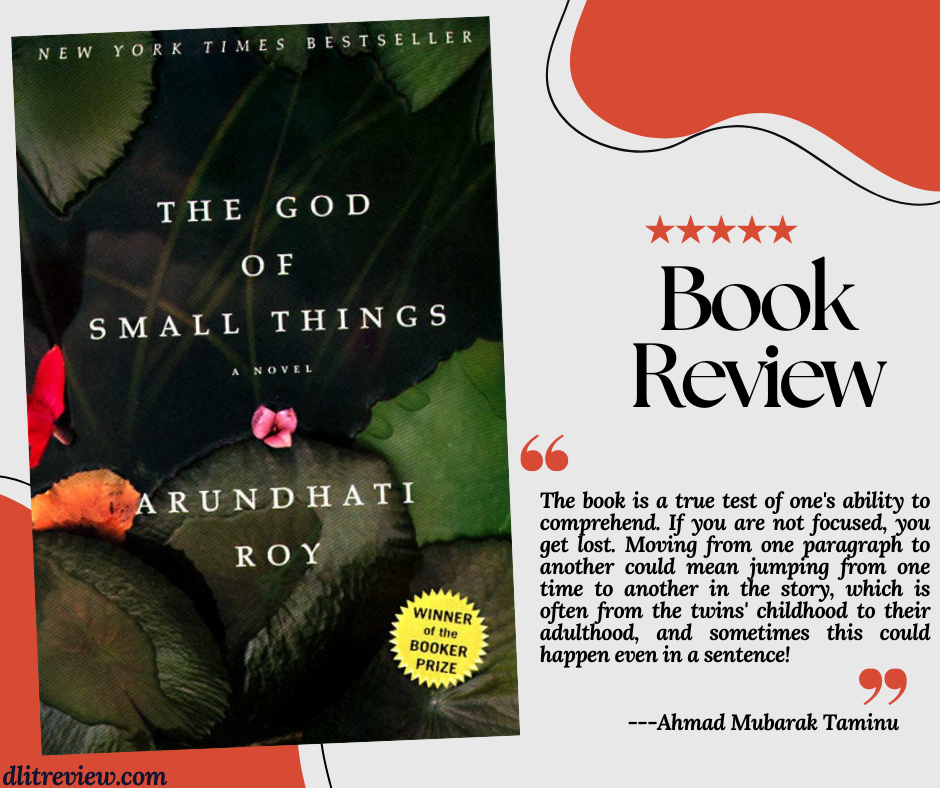Arundhati Roy‘s The God of Small Things is the ninth novel I’ve read this year, making it my most productive year for fiction. I’m primarily a reader of papers and non-fiction, and to be honest, this book isn’t for the amateur reader. However, it’s entertaining and, in my opinion, a truly worthy winner of the Booker Prize.
The book truly tests one’s ability to comprehend. If you’re not focused, you’ll get lost. Moving from one paragraph to the next might mean jumping between different periods in the story – often from the twins’ childhood to their adulthood – sometimes even within a single sentence!
I believe the book was written with great ambition, and much of that ambition, if not all, has been achieved or even surpassed.
Several themes are explored in the book, but ultimately we see how the caste system, gender discrimination, and politics destroy the lives of three innocent children: the twins, Esthappen and Rahel, and their cousin, Sophie Mol.
This family drama, set in Kerala, India, features the twins’ maternal grandfather, Pappachi, as the head of the family. Until his death, he was a respected community leader who beat his wife and cruelly punished his children. Roy describes him thus:
“In her formative years, Ammu had watched her father weave his hideous web. He was charming and urbane with visitors, stopping just short of fawning over them if they happened to be white. He donated money to orphanages and leprosy clinics, working hard on his public profile as a sophisticated, generous, moral man. But alone with his wife and children, he became a monstrous, suspicious bully with a streak of vicious cunning. They were beaten, humiliated, and then made to endure the envy of friends and relations for having such a wonderful husband and father.”
The beating of Mammachi, the twins’ maternal grandmother, by Pappachi ended only when her Oxford-educated son, Chacko (the twins’ uncle), returned home. His father attempted to slap the mother in his presence, but Chacko swiftly intercepted the blow and warned his father never to try that again. The father died slowly after that humiliation.
Things were improving until the day the twins and their mother, Ammu, decided to love Velutha, a member of the Paravan caste, the lowest on the social ladder. He was not someone they were supposed to love. The twins’ love for him sparked a forbidden love in their single mother.
Due to the apartheid and the segregation against Velutha’s background, Ammu couldn’t marry him or even reveal their relationship. They would meet secretly and have moments of intimacy with the hope of getting it again, only tomorrow. Just tomorrow. However, Chako, Ammu’s elder brother, was allowed to bed all kinds of women. A special backdoor was created for him in the house to move his concubines undetected by the public.
Estha and Rahel were energetic children full of life. Their childhood experiences made the book compelling, humorous, and sensational. Only to end up separated, their mum sent out of the house and would later die, and her lover, Velutha killed by police brutality under the false accusation of rape and kidnapping, all orchestrated by Baby Kochamma, the grandaunt of the twins who lived a life of bitterness over unrequited love. But the whole family was brought down to its knees in the end and there was incest between the twins on their reunion.
5/5. What a book!

